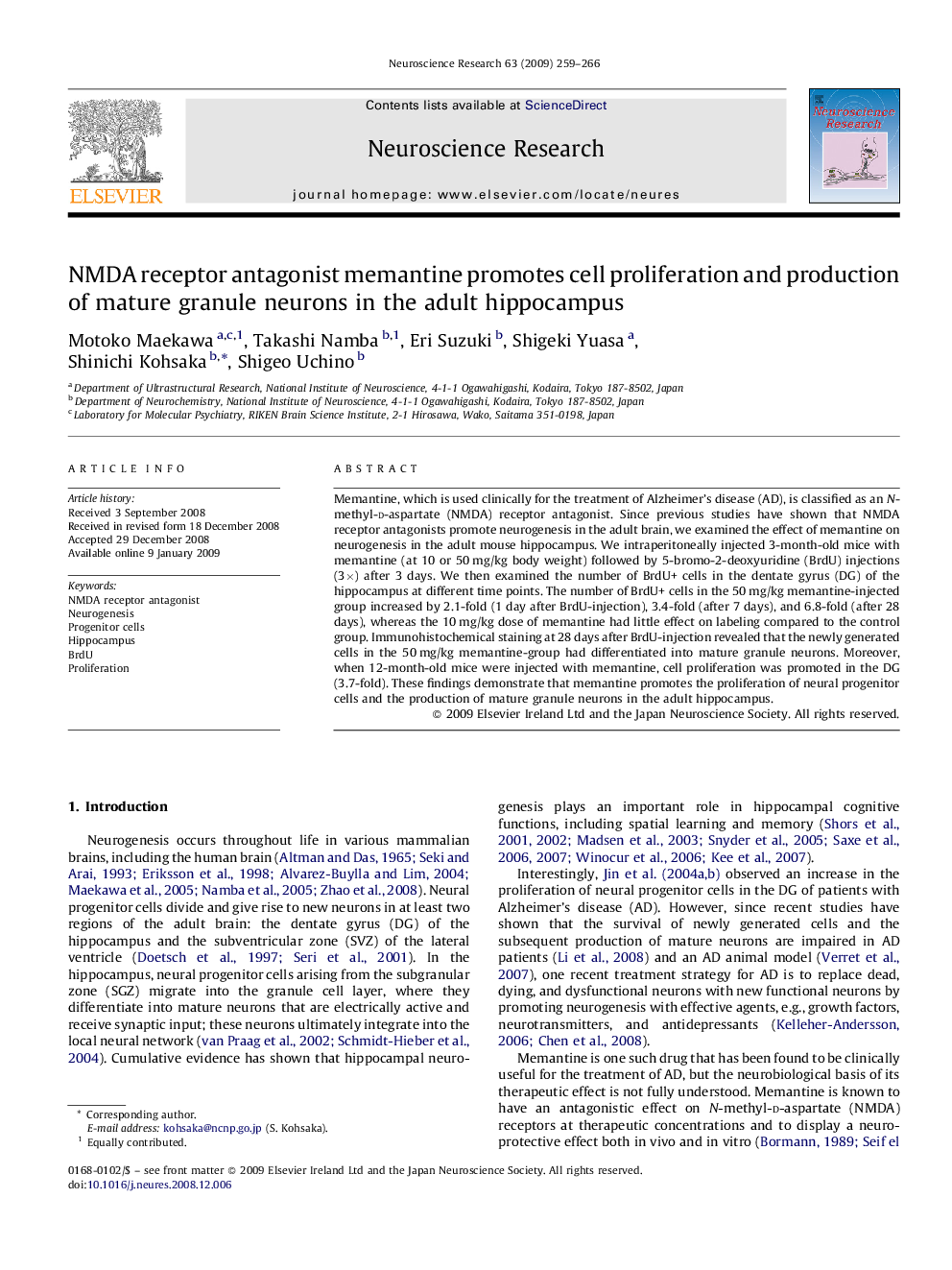| Article ID | Journal | Published Year | Pages | File Type |
|---|---|---|---|---|
| 4352085 | Neuroscience Research | 2009 | 8 Pages |
Memantine, which is used clinically for the treatment of Alzheimer's disease (AD), is classified as an N-methyl-d-aspartate (NMDA) receptor antagonist. Since previous studies have shown that NMDA receptor antagonists promote neurogenesis in the adult brain, we examined the effect of memantine on neurogenesis in the adult mouse hippocampus. We intraperitoneally injected 3-month-old mice with memantine (at 10 or 50 mg/kg body weight) followed by 5-bromo-2-deoxyuridine (BrdU) injections (3×) after 3 days. We then examined the number of BrdU+ cells in the dentate gyrus (DG) of the hippocampus at different time points. The number of BrdU+ cells in the 50 mg/kg memantine-injected group increased by 2.1-fold (1 day after BrdU-injection), 3.4-fold (after 7 days), and 6.8-fold (after 28 days), whereas the 10 mg/kg dose of memantine had little effect on labeling compared to the control group. Immunohistochemical staining at 28 days after BrdU-injection revealed that the newly generated cells in the 50 mg/kg memantine-group had differentiated into mature granule neurons. Moreover, when 12-month-old mice were injected with memantine, cell proliferation was promoted in the DG (3.7-fold). These findings demonstrate that memantine promotes the proliferation of neural progenitor cells and the production of mature granule neurons in the adult hippocampus.
